Dive Details
Location
Date
Sunday 7 June 2015
Time
11:40am - 12:52pm
Details
For the second dive from BENT we went to Henry Head. I hadn't dived at Henry Head since late December 2013 so it was going to be interesting to see if it had changed and if any of the seahorses were still around. Last time I'd dived there I had seen 8 seahorses and there had been another 4 seen on previous trips.
AJ and I descended the anchor line and got our bearings off the upturned boat which was just to the north west of the anchor. Visibility was around 10 metres and the site looked fantastic. We headed south along the reef and I wasn't exactly sure where we were until we reached Seahorse Rock which looked the same as it did last time I was there, albeit missing a few sponges. Unfortunately, there wasn't a single seahorse on the rock - at least none that I could find. I also checked the nearby rocks with the gap where there used to be two seahorses but there were none there, either. As it has been so long since I have been there it is difficult to know if the seahorses were washed away in the storm or had already gone by then.
We followed the sand line to deeper water keeping an eye out for seahorses on other rocks. We came across three weedy seadragons in the deeper water so it is good to know they are still around.
The tide had turned and the outgoing current was getting quite strong so we turned and headed back to the shallows. As I approached Seahorse Rock I noticed a red indianfish just below it. It is also good they are still around but where are the seahorses?On our way back to the anchor I checked out the other rock that had seahorses ("Halle", "Bernard" and "Lee"). There were none visible.
We did our safety stop on the anchor line and went back to the boat.
Buddy
AJ
Seas
Slight
Visibility
10 metres
Duration
67 minutes
Maximum depth
19.3 m
Average depth
13.7 m
Water temperature
18.1°C
Dive Profile from Citizen Hyper Aqualand
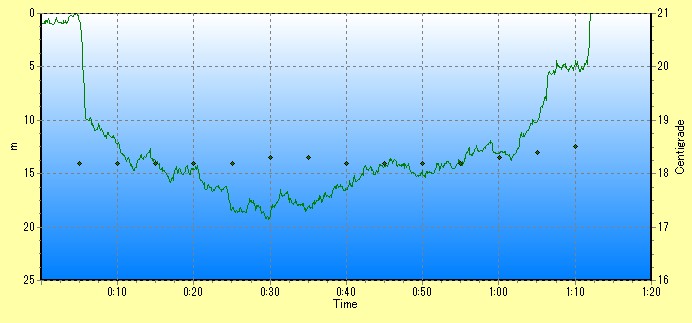
Tides at Botany Bay AEST
Note that tides at dive site may vary from above location.
Low
5:53am
0.37m
High
11:58am
1.42m
Low
5:34pm
0.61m
High
11:58pm
1.79m
Camera gear
Camera
Nikon D7000
Lens
Nikon AF Micro-Nikkor 60mm f/2.8D
Housing
Ikelite 6801.70
Lens port
Ikelite Flat Port 5502.41
Strobe
2 x Ikelite SubStrobe DS161
Photographs
Depth information, where present, indicates the depth of the camera when the photograph was taken and can be used to approximate the depth of the subject.
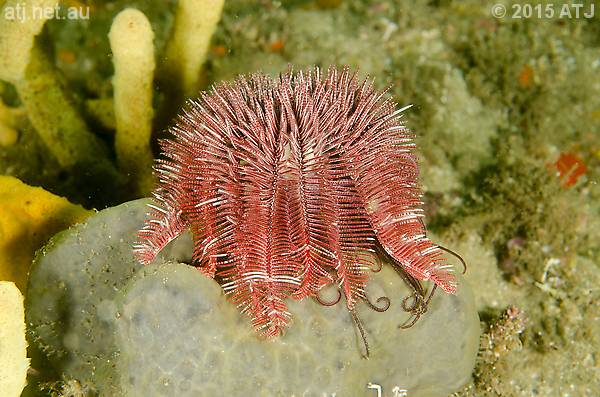
Feather star, Ptilometra australis. 15.5 m.
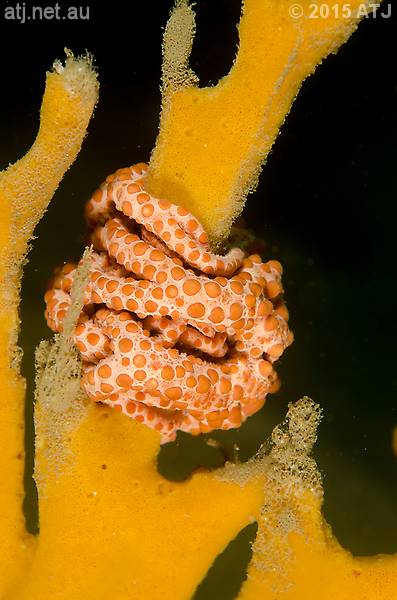
Basket star, Astrosierra amblyconus. 15.1 m.
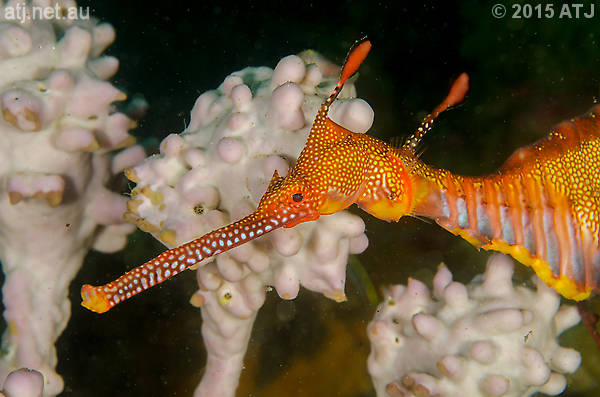
Weedy seadragon, Phyllopteryx taeniolatus. 18 m.
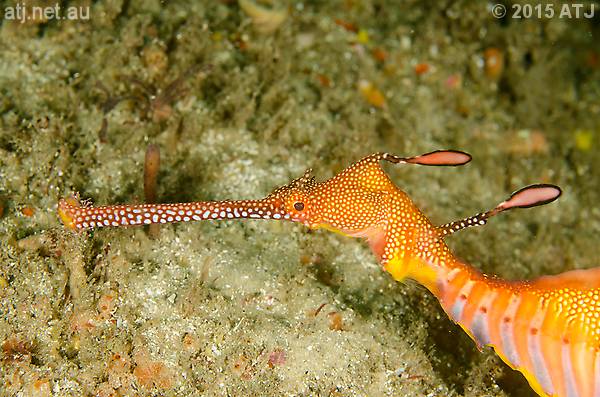
Weedy seadragon, Phyllopteryx taeniolatus. 18.3 m.
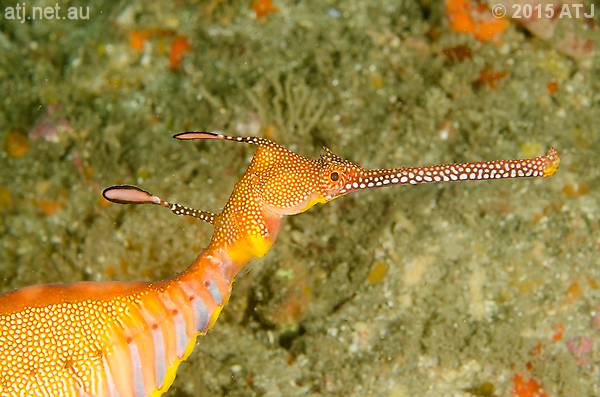
Weedy seadragon, Phyllopteryx taeniolatus. 18.2 m.
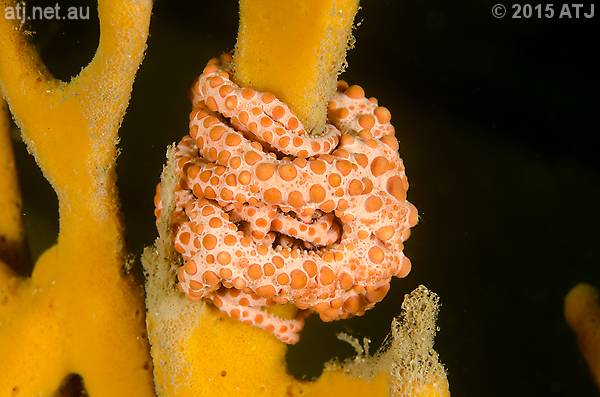
Basket star, Astrosierra amblyconus. 15.1 m.
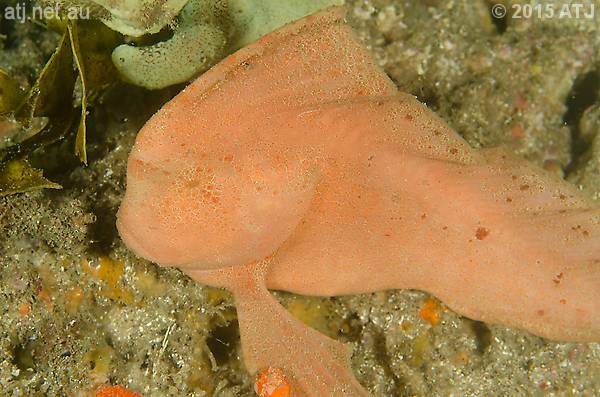
Red indianfish, Pataecus fronto. 14.3 m.